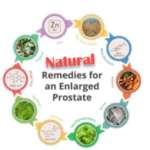In today’s world, alternative therapies and herbal supplements are still popular choices for many people. But before you try one of these remedies, you should talk with your physician. They should know which ones work, and which ones do not. This way, you can avoid any negative effects of using these treatments. Here are some natural remedies you can try.
St. John’s wort
A recent study found that St. John’s wort may help improve attention and activity in children with ADHD. However, this study was not able to show whether it would help the same effect in adults. There are many potential side effects associated with St. John’s wort, so it is important to discontinue use gradually to avoid any of them. Another side effect may be a rare but potentially fatal serotonin syndrome. Additionally, it can increase the effect of triptan drugs, which are often prescribed to treat migraine. It also has a similar adverse effect profile to fluoxetine, and it could cause serious adverse effects if used in conjunction with the drug.

The most common uses of St. John’s wort are in the treatment of depression and conditions associated with it. It can help alleviate physical and emotional symptoms like anxiety and fatigue. It is also used to treat premenstrual syndrome, attention deficit hyperactivity disorder, and seasonal affective disorder. However, the effectiveness of St. John’s wort for depression is still questionable. It is best to consult a doctor if you are depressed or have any other medical conditions.
A supplement containing St. John’s wort is usually safe to take for 8 to 12 weeks. However, you should consult your doctor if you plan to take it longer than recommended. Also, it may interact with other supplements, such as antidepressants or nutritional supplements. In large doses, St. John’s wort can cause side effects like overactive reflexes, agitation, and sweating. If you are pregnant or breastfeeding, you should not take St. John’s wort unless you are sure you will not experience side effects.
In clinical trials, St. John’s wort extract was given to adults at a dose of 300 milligrams three times daily. In the United States, St. John’s wort can be obtained over-the-counter, while in other countries, a doctor’s prescription is required.
Ginger tea
Ginger tea has long been used as a natural cure for inflammation. It has the ability to reduce pro-inflammatory markers and speed up the digestive process. In addition, ginger contains antioxidants that may help prevent cancer. However, more studies are needed to confirm this. Ginger may also protect against oxidative stress and inflammation, which play a vital role in the development of many degenerative diseases.
While ginger tea is widely accepted as safe by the FDA, there are several precautions to take before drinking it. It should not be consumed by people with a history of blood clotting problems or those taking anticoagulants. It will increase the risk of excessive bleeding, so it is essential to consult a doctor before taking ginger.
Ginger tea can be prepared at home by combining one cup of water with a couple of slices of fresh ginger. After adding the ginger to the water, let it simmer for five to ten minutes. For a stronger tea, add lemon juice or honey to the drink. Alternatively, you can simply serve the tea plain.
Ginger tea is an excellent way to relieve the symptoms of allergies. The spices in ginger reduce the inflammation caused by the immune system. This inflammation leads to itchy eyes, sneezing, and wheezing. Ginger is also an anti-inflammatory, which means it can help heal and reduce the risk of chronic diseases like rheumatoid arthritis.
Ginger is also an excellent natural cure for period pain and can help reduce the severity of period cramps. Drinking ginger tea can help relax the muscles and relieve period cramps. It is also known to help reduce stress. It has been shown to be effective in treating pain caused by migraine.
Chamomile tea
Chamomile has been used for centuries as a natural medicine. Its anti-inflammatory and mild astringent properties make it a versatile remedy for a number of ailments. It is often prescribed to treat wounds and bacterial infections. In addition, its soothing properties make it an effective remedy for migraine headaches.
Chamomile is a rich source of flavonoids, a class of antioxidants. These compounds protect cells from damage and reduce inflammation, which is one of the leading causes of chronic illnesses, including heart disease. In fact, a recent study revealed that chamomile can reduce blood pressure, which is an important health concern since high blood pressure can stiffen arteries and reduce circulation.
Chamomile is most often used in tea form, but it can also be taken in capsule form. In capsule form, you can take anywhere from two to six grams a day. However, chamomile can have adverse effects on some people and may interfere with other herbal remedies or medications. Therefore, it is important to speak with your doctor before taking chamomile.
A recent study has also found that drinking chamomile tea can improve sleep quality. It has a mild flavor and has been shown to help postpartum women get a good night’s sleep. In addition, it may also be useful for people suffering from mild anxiety and depression. It may also improve the regulation of blood sugar levels and help liver glycogen storage in people with diabetes.
Chamomile tea contains flavonoids, a class of antioxidants. These compounds help to lower blood pressure and cholesterol. Cholesterol levels are an important indicator for the development of heart disease. The consumption of chamomile tea may help regulate blood sugar levels and decrease the risk of heart disease and stroke.
Licorice tea
Licorice root extract can help to treat a sore throat and cough. It also has anti-diabetic properties and can be used as a sugar substitute for diabetics. Licorice tea can also help to reduce body fat. Licorice contains the compound glycyrrhizin, which has an anti-diabetic effect. Another benefit of licorice is its ability to suppress the production of stress hormones. These hormones are associated with mental decline, so it is important to understand how licorice can help.
In ancient times, people used licorice tea to treat stomach upset. Licorice root tea contains antispasmodic properties, which soothe gas and bloating in the intestines. It is also believed to help relieve heartburn and indigestion. Various studies have shown that licorice root tea can also help reduce the symptoms of acid reflux and GERD.
Although licorice is a powerful natural remedy, consuming too much of it can have adverse effects. Drinking more than 4-5 g a day could cause dangerously low potassium levels, which can lead to cardiovascular problems. Therefore, it is best to consult your healthcare provider before using licorice.
Another benefit of licorice tea is its ability to soothe a sore throat. It also boosts the immune system and helps to fight off bacteria that cause a cold. Licorice root tea contains compounds that soothe the throat and reduce itching. It has even been used in trials in patients who underwent throat surgery. The results were promising, as patients who gargled with licorice tea after the procedure did not develop any sore throats.
Licorice tea has been used for centuries as a natural remedy. Though most people drink it for erectile dysfunction and heart problems, it is also beneficial for the skin, digestive health, and oral health. When drinking licorice root tea, it is important to consult a healthcare practitioner and make sure you drink it in its natural form, as tea bags can contain additives that can affect the effects.
Sage
Sage is often used in the treatment of many illnesses. Its many benefits include improving memory and improving the ability to concentrate. It may also lower bad cholesterol, which is a major risk factor for heart disease. It also raises “good” cholesterol, known as HDL. Consequently, it may be beneficial for the prevention and treatment of inflammatory conditions.
Sage can be purchased from health food stores, online, or from traditional herbalists. You can also grow your own sage and use it in a variety of ways, including herbal teas. The best way to grow sage is to cut it rather than pull it by the root. Make sure you cut the plant only when it is large enough to sustain itself. Next, you should tie the stems together in a bundle. Once they are dry, they can be dried.
Sage is an ancient herb with a long history of use. It is related to other plants such as thyme, oregano, and lavender. It has been used in traditional medicine for many centuries, and its use was widespread in medieval Europe. It also made its way into British herbal apothecaries from the 16th century. Its benefits were noted by English herbalist John Gerard and the American physician Nicholas Culpeper.
Sage is an herb that can help relieve many ailments. It has an antimicrobial effect and has long been used for medicinal purposes. It is especially helpful in the treatment of colds and sore throats. Sage is also a great herbal remedy for digestive problems. It helps to increase appetite and relieves bloating and stomach pain.








